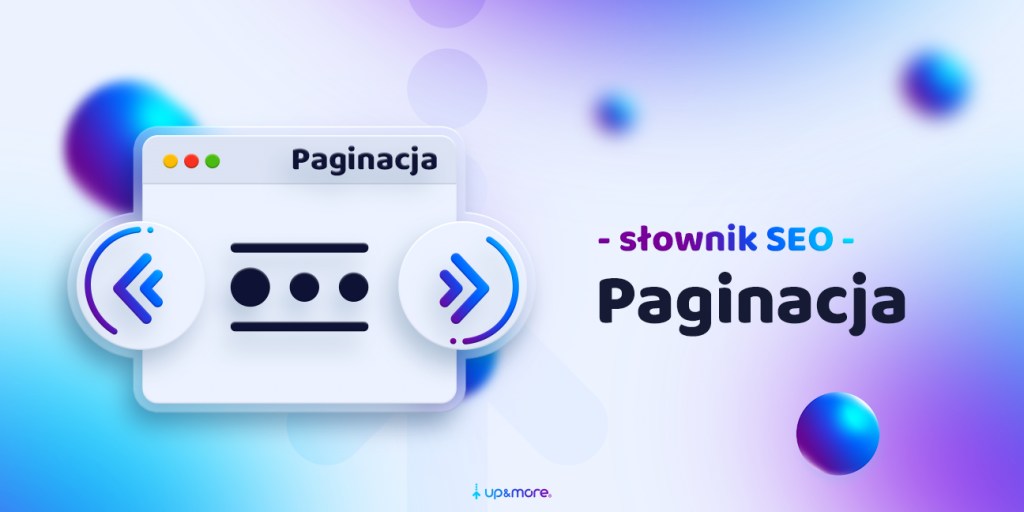Table of contents
Pagination (pagination) is the division of content into successive sub-pages. Page numbering is most commonly seen on blogs, online stores, and product category pages at the bottom of the page.

Pagination of websites – what you should watch out for
Pagination of web pages is also used for long articles or testimonials with photos. If you want to implement pagination, you must ensure that the content on the page is not identical – prevent duplication of content. If you have duplication on subsequent pages, you will lead to cannibalization of the content (keywords) of your pages. As a result, the robots of Google and other search engines will consider the pages low-quality sites, and in most cases, it leads to a drop in search positions.
Page pagination types
Implementing pagination is useful for Google robots and the user – after all, he is your potential customer. The most important thing is that pagination should be easy to use. Therefore, there are several types of pagination within a site.
- Numeric pagination – page numbers are displayed so the user can navigate the site. This example is used, for example, in Google’s search engine.
- Infinite pagination (aka infinite scroll) – content loads automatically when going down the page. This is how to browse (scroll) publications and posts on Facebook and Instagram. This is one of the most convenient paginations for mobile devices.
- Advanced pagination – involves the ability to select the data displayed to users. It is very often used in online stores. Each user can choose the page that interests him the most. Thanks to advanced filters, users get a specific answer to their query. Clicking through the categories pages to find the desired products is unnecessary.
What should the pagination of the following pages look like?
We have many products in our online stores, and implementing pagination (good navigation) is crucial for Google robots and users.
Content that differs from page to page
If we have different products for each pagination page (e.g. online stores), it is necessary to add a canonical (canonical link) to each pagination page. That is, page 3 of the pagination should have a canonical link leading to the 3rd page (i.e. itself).
Canonical pages have the same content.
Sometimes, content is duplicated on consecutive pages. It can be the same text or services, so in this case, the pagination of web pages should look like this. Select the original page on your site. The canonical link from the rest of the pagination pages should point to it. This is a clear signal to Google robots to avoid duplicating specific content on the site.
Pagination websites – this is something Google no longer respects
In March 2019, Google announced that the search engine no longer supports the attributes rel=” next” and rel=” prev”. Until then, SEO used them to redirect Google robots to the next pagination pages. Adding these attributes helped them understand the system’s structure and position accordingly in search results.
Currently, using them is not necessary, as the company has stated that the algorithms are very advanced and can correctly understand the links present on the page and the structure of the site without these indicators directing to the next page.
How pagination can affect SEO
- Indexing pages
- Positive Impact – By properly organizing content, search engines can better understand the structure of a site and index pages according to their meaning.
- Negative impact – Improperly implemented pagination can lead to indexing problems and make some pages difficult for search engines to find.
- Content duplication
- Negative impact – If multiple pagination pages contain the same titles, meta descriptions, or H1 headings, this can be considered duplicate content, which is detrimental to SEO.
- Internal linking
- Positive Impact – Paging can increase the number of internal links on a page, which can help transfer SEO value (aka „link juice”) between pages.
- Utility and time spent on site
- Positive Impact – Good pagination improves usability, which can lead to longer time spent on a page and lower rejection rates, which is good for SEO.
- Negative Impact – Poor quality pagination can discourage users, leading to higher rejection rates.
- Mobile Optimization
- Positive Impact – If your pagination is optimized for mobile devices, it can positively impact your ranking in mobile search results.
- Negative impact – If the pagination is not properly designed for mobile devices, it can negatively impact user experience and SEO ranking.
- Control crawl budget
- Negative Impact – An overly complex pagination structure can consume search engines’ indexing budget, leading to slower indexing of important pages.
Was the article helpful?
Rate our article, it means a lot to us!
Let's talk!
She has been in marketing for 4 years. She feels most confident in the area of SEO and UX. At Up&More, as an SEO Specialist, she is in charge of increasing the visibility of our clients.